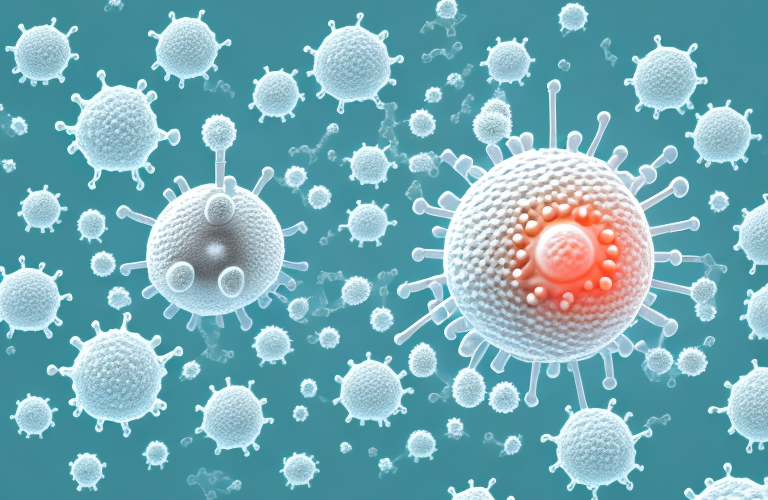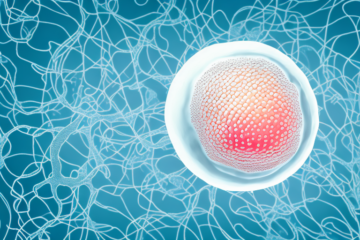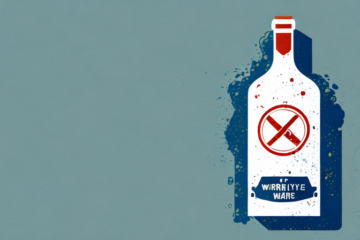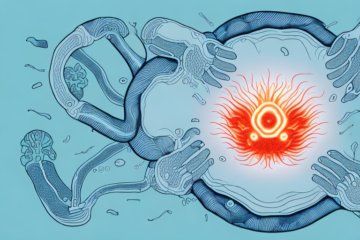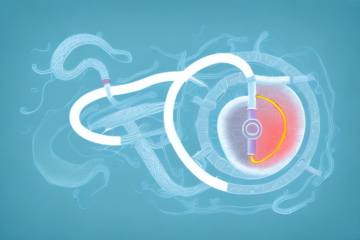Genital warts, also known as condyloma acuminate, are a type of sexually transmitted infection (STI) that can affect both men and women. They are caused by the human papillomavirus (HPV), which is a group of over 150 related viruses. Genital warts can be found on the penis, vulva, cervix, anus, and other areas of the genital and anal regions. In this article, we’ll explore the causes, symptoms, diagnosis, treatment, prevention, and other important aspects of genital warts.
Causes and Risk Factors of Genital Warts
Genital warts are primarily caused by HPV types 6 and 11, although other types of HPV can also cause them. HPV is a very common virus that can be transmitted through any type of sexual contact, including vaginal, anal, and oral sex. The virus can also be spread through skin-to-skin contact, such as during foreplay or when sharing sex toys. People who have unprotected sex with multiple partners or who have a weakened immune system are at a higher risk of getting genital warts.
It is important to note that not everyone who is infected with HPV will develop genital warts. In fact, many people who have the virus may not even know they are infected. This is because the virus can remain dormant in the body for years before any symptoms appear. Additionally, some people may have a natural immunity to certain types of HPV, which can protect them from developing genital warts.
While genital warts themselves are not usually harmful, they can be a sign of a more serious health issue. In some cases, HPV can lead to the development of cervical, anal, or throat cancer. It is important for anyone who is sexually active to get regular check-ups and screenings to detect any potential health problems early on.
Symptoms and Signs of Genital Warts
Genital warts can have different appearances, depending on their location and size. They can be small and flat, or large and raised. They may look like cauliflower or have a rough, bumpy texture. Genital warts usually don’t cause pain or itching, but they can be a source of embarrassment or discomfort for some people. They may also bleed during sex or when irritated.
It is important to note that not all cases of genital warts are visible to the naked eye. Some warts may be located inside the vagina or anus, making them difficult to detect without a medical examination. Additionally, genital warts can sometimes be accompanied by other symptoms, such as abnormal vaginal or penile discharge, or pain during sex.
If left untreated, genital warts can increase the risk of developing certain types of cancer, such as cervical cancer in women. It is important to seek medical attention if you suspect you may have genital warts, as treatment can help to reduce the risk of complications and prevent the spread of the virus to others.
How to Get Tested for Genital Warts
If you suspect that you may have genital warts, it’s important to see a healthcare provider for an accurate diagnosis. A healthcare provider can usually diagnose genital warts by examining the affected area. They may also perform a biopsy or order a lab test to confirm the diagnosis or rule out other conditions. If you have genital warts, your healthcare provider may also recommend testing for other STIs, since they often occur together.
It’s important to note that not all cases of genital warts are visible to the naked eye. In some cases, the warts may be too small or located in areas that are difficult to see. In these cases, your healthcare provider may recommend additional testing, such as a colposcopy or a pap smear, to check for the presence of the virus that causes genital warts.
It’s also important to remember that genital warts are caused by a virus called human papillomavirus (HPV). While there is no cure for HPV, there are vaccines available that can help prevent certain strains of the virus that cause genital warts and other types of cancer. Talk to your healthcare provider about whether the HPV vaccine is right for you.
Treatment Options for Genital Warts
There are several treatment options for genital warts, but there is no cure for HPV. The goal of treatment is to remove the visible warts and reduce the risk of transmission to others. Treatment options include topical medications, cryotherapy (freezing), electrocautery (burning), surgical excision (cutting), and laser therapy. The choice of treatment depends on the location, size, and number of warts, as well as the person’s preference and medical history. Some treatments may cause side effects, such as pain, swelling, scarring, or infection.
It is important to note that even after treatment, the virus may still be present in the body and can cause the warts to return. Therefore, it is recommended to have regular check-ups with a healthcare provider and practice safe sex to reduce the risk of transmission. Additionally, HPV vaccines are available to prevent certain types of HPV that can cause genital warts and other related health issues.
Medications for Genital Warts: Pros and Cons
Topical medications are often used to treat genital warts. These medications work by destroying the warts or boosting the immune system to fight the virus. Some examples of topical medications include imiquimod, podophyllin, podofilox, and sinecatechins. These medications are generally safe and effective, but they may take several weeks or months to work. They may also cause side effects, such as redness, itching, burning, or peeling of the skin.
Another treatment option for genital warts is cryotherapy, which involves freezing the warts with liquid nitrogen. This treatment is usually done in a doctor’s office and may require multiple sessions. Cryotherapy can be effective, but it may also cause pain, blistering, or scarring.
In some cases, surgical removal of the warts may be necessary. This may involve cutting, burning, or using a laser to remove the warts. Surgery is usually reserved for larger or more stubborn warts that do not respond to other treatments. However, surgery may also cause pain, scarring, or infection.
Surgical Procedures for Genital Warts Removal
Surgical procedures may be recommended for larger or stubborn warts that don’t respond to other treatments. These procedures include excision, laser surgery, electrocautery, and cryotherapy. Excision involves cutting the warts out with a scalpel or scissors. Laser surgery uses a beam of light to destroy the warts. Electrocautery uses heat to burn off the warts. Cryotherapy uses liquid nitrogen to freeze the warts off. These procedures may cause pain, bleeding, or scarring, and they may require several rounds of treatment.
It is important to note that surgical procedures for genital warts removal should only be performed by a trained healthcare professional. Attempting to remove warts at home can lead to further complications and may not effectively remove the warts. Additionally, it is important to follow post-operative care instructions carefully to ensure proper healing and to prevent infection.
While surgical procedures can be effective in removing genital warts, they do not cure the underlying HPV infection. It is still possible to transmit the virus to sexual partners even after the warts have been removed. Practicing safe sex, including using condoms and getting regular STI testing, is important in preventing the spread of HPV and other sexually transmitted infections.
Home Remedies for Treating Genital Warts
There are several home remedies that people may try to treat genital warts, although there is little scientific evidence to support their effectiveness. Some examples of home remedies include apple cider vinegar, tea tree oil, garlic, and duct tape. These remedies may be less expensive or more convenient than other treatments, but they may also be ineffective, risky, or cause harm. It’s important to talk to a healthcare provider before trying any home remedies for genital warts.
One important thing to note is that while home remedies may seem like a good option, they are not a substitute for medical treatment. Genital warts are caused by a virus and can be easily spread to others through sexual contact. It’s important to seek medical attention to properly diagnose and treat genital warts to prevent further spread and potential complications. In addition to medical treatment, practicing safe sex and getting regular check-ups can also help prevent the spread of genital warts.
Prevention Strategies for Avoiding Genital Warts
The best way to prevent genital warts is to practice safer sex and get vaccinated against HPV. Safer sex includes using condoms and dental dams, limiting sexual partners, and avoiding sexual contact with anyone who has visible warts or other signs of infection. HPV vaccination is recommended for both boys and girls between the ages of 9 and 26, although it can be given up to age 45 in certain cases. The vaccine is highly effective at preventing HPV types 6 and 11, as well as several other types of HPV that can cause cancer.
In addition to practicing safer sex and getting vaccinated, it is important to have regular check-ups with your healthcare provider. Genital warts can sometimes be difficult to detect, and early treatment is key to preventing the spread of the virus. If you do develop genital warts, it is important to avoid touching or scratching them, as this can spread the virus to other parts of your body or to your sexual partner. Your healthcare provider can recommend treatment options, which may include topical creams, cryotherapy, or surgical removal of the warts.
Common Myths and Misconceptions About Genital Warts
There are many myths and misconceptions about genital warts that may lead to confusion, stigma, or incorrect information. Some common myths include that only promiscuous or dirty people get genital warts, that condoms always prevent genital warts, that genital warts are a sign of infidelity, or that genital warts always lead to cancer. These myths are not true and may cause unnecessary fear, shame, or blame. It’s important to get accurate information and support for genital warts from reputable sources.
Another common myth about genital warts is that they always appear immediately after sexual contact with an infected person. However, it can take weeks, months, or even years for genital warts to appear after exposure to the virus. This means that someone may have contracted the virus from a previous partner and not even know it until much later.
It’s also important to note that genital warts are not the same as herpes or other sexually transmitted infections. While they are all spread through sexual contact, they have different symptoms, treatments, and outcomes. It’s important to get tested regularly for all sexually transmitted infections and to talk to a healthcare provider about any concerns or questions.
Living with Genital Warts: Coping Strategies and Support
Living with genital warts can be challenging, especially if they affect your self-esteem, relationships, or sexual activity. It’s important to remember that genital warts are a common and treatable condition that does not define your worth or identity. You may find it helpful to talk to a healthcare provider, a counselor, or a support group about your feelings, questions, or concerns. You may also want to take care of your physical and emotional health by following a healthy diet, getting enough sleep, exercising regularly, and practicing stress-reducing techniques such as yoga or meditation.
It’s also important to educate yourself and your sexual partners about genital warts, including how they are transmitted and how to prevent them. Using condoms during sexual activity can reduce the risk of transmission, but it’s important to note that condoms do not provide complete protection. It’s also recommended to get regular check-ups and screenings for sexually transmitted infections, including genital warts. Remember, you are not alone in dealing with this condition and there are resources available to help you cope and manage your symptoms.
The Connection Between HPV and Genital Warts
HPV is the main cause of genital warts, but not all types of HPV cause warts. Some types of HPV can also cause cancer, especially cervical cancer, anal cancer, and oropharyngeal cancer. HPV can also cause other health problems, such as abnormal pap tests, genital, cervical, or anal dysplasia, or recurrent respiratory papillomatosis. Some people may have HPV without any symptoms or complications, while others may have persistent or recurrent infections. It’s important to get regular check-ups and screenings for HPV and related conditions, especially if you are at higher risk.
Prevention is key when it comes to HPV and genital warts. The HPV vaccine is recommended for both males and females between the ages of 9 and 45. It is most effective when given before any sexual activity, but can still provide some protection even after exposure to the virus. Additionally, practicing safe sex by using condoms can reduce the risk of contracting HPV and other sexually transmitted infections. It’s important to have open and honest conversations with your healthcare provider about your sexual health and any concerns you may have.
Understanding the Link Between Genital Warts and Cancer
Genital warts themselves are not cancerous, but some types of HPV that cause genital warts can lead to cancer over time. The longer a person has an HPV infection, the higher their risk for developing cancer. Cancer caused by HPV is often preventable through regular screening, early detection, and treatment. The best way to reduce your risk for HPV-related cancer is to get vaccinated, practice safer sex, and get regular check-ups and screenings.
Genital warts can be a stressful and inconvenient condition, but they are also a manageable and treatable one. With accurate information, support, and care, many people are able to overcome the challenges of genital warts and lead healthy and fulfilling lives.
It is important to note that not all cases of HPV infection lead to cancer. In fact, most cases of HPV infection do not result in cancer. However, it is still important to take precautions and get regular check-ups to ensure early detection and treatment if necessary. Additionally, practicing safe sex and getting vaccinated can greatly reduce your risk of contracting HPV and developing related health issues.

